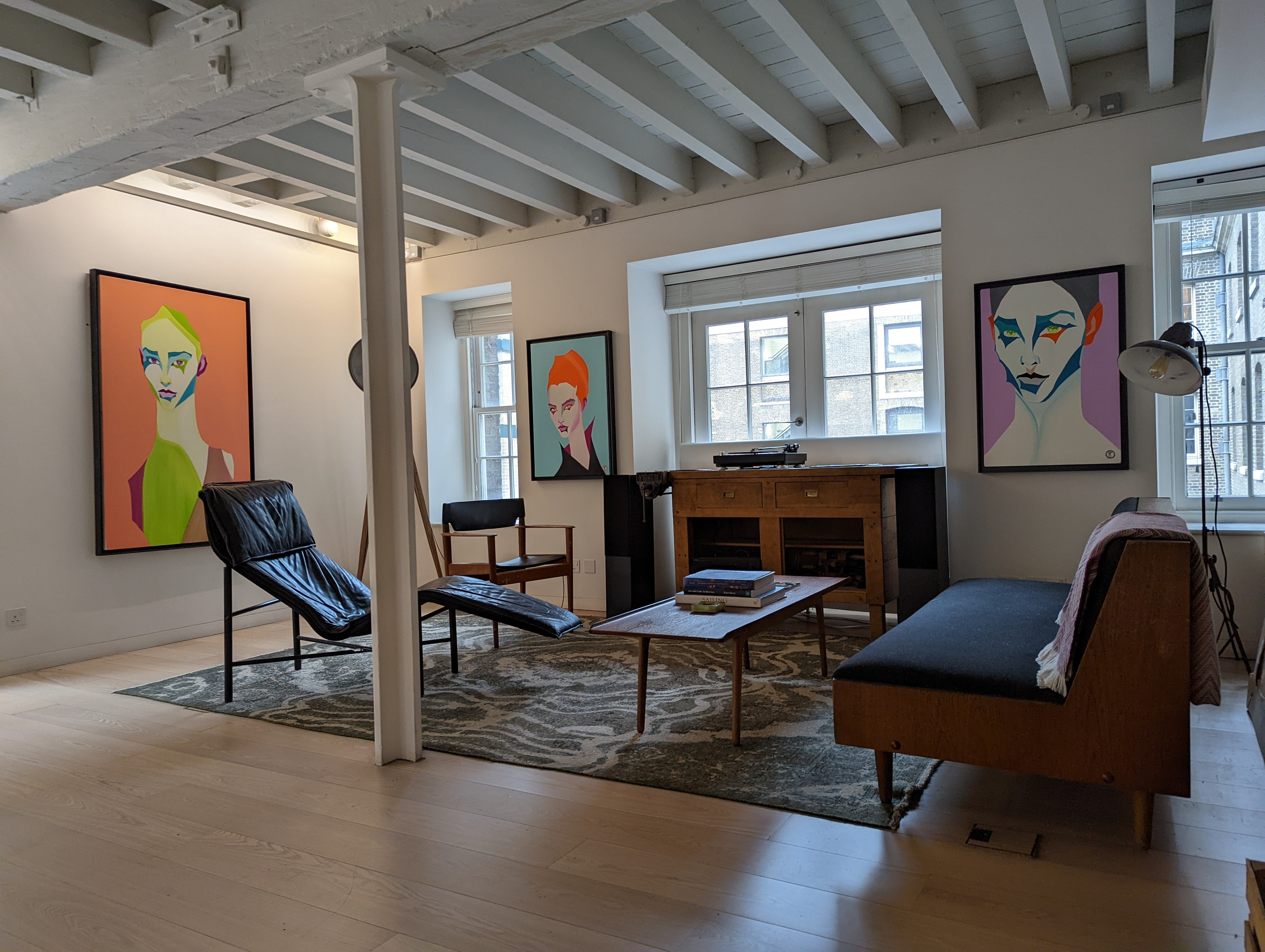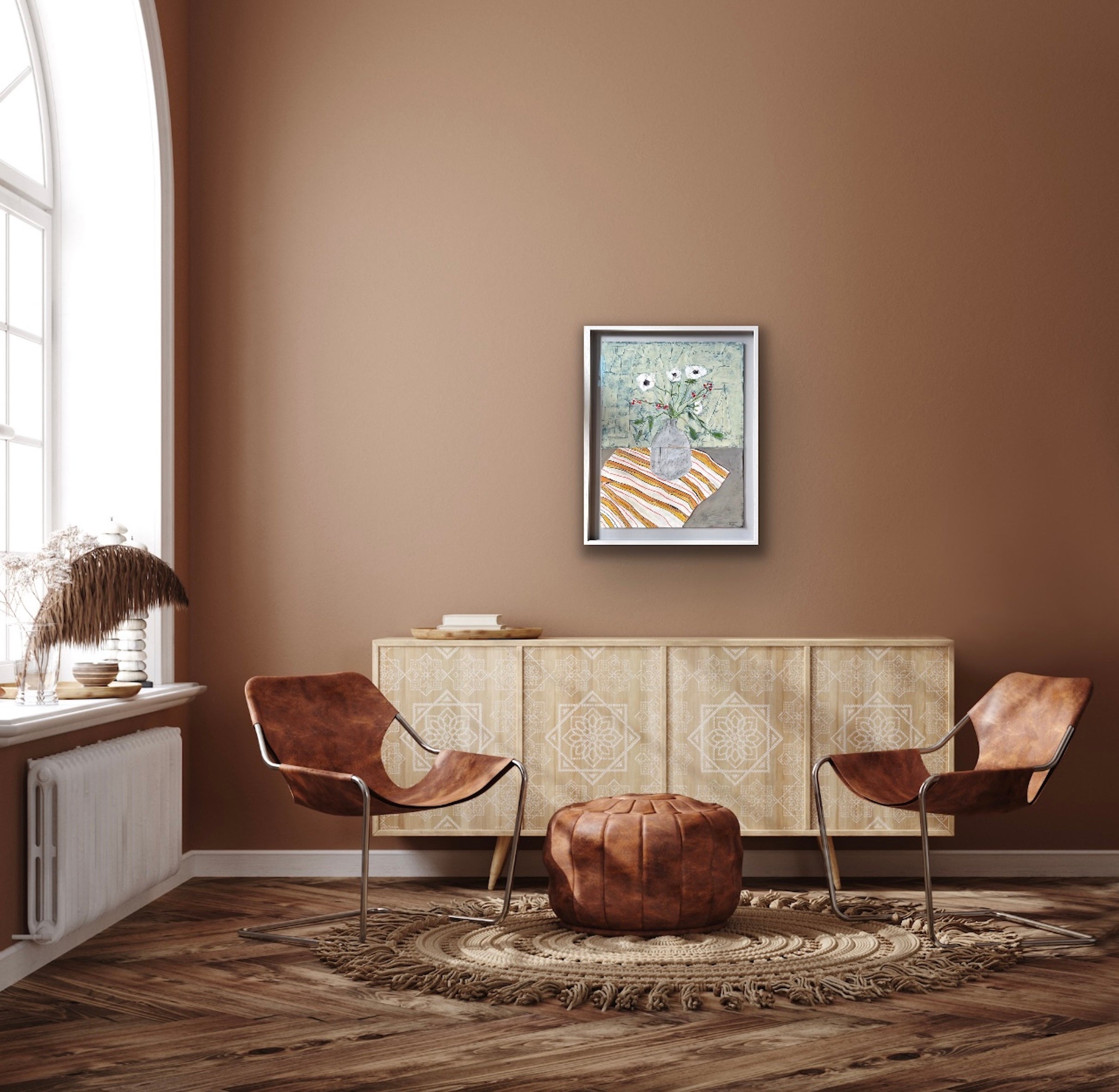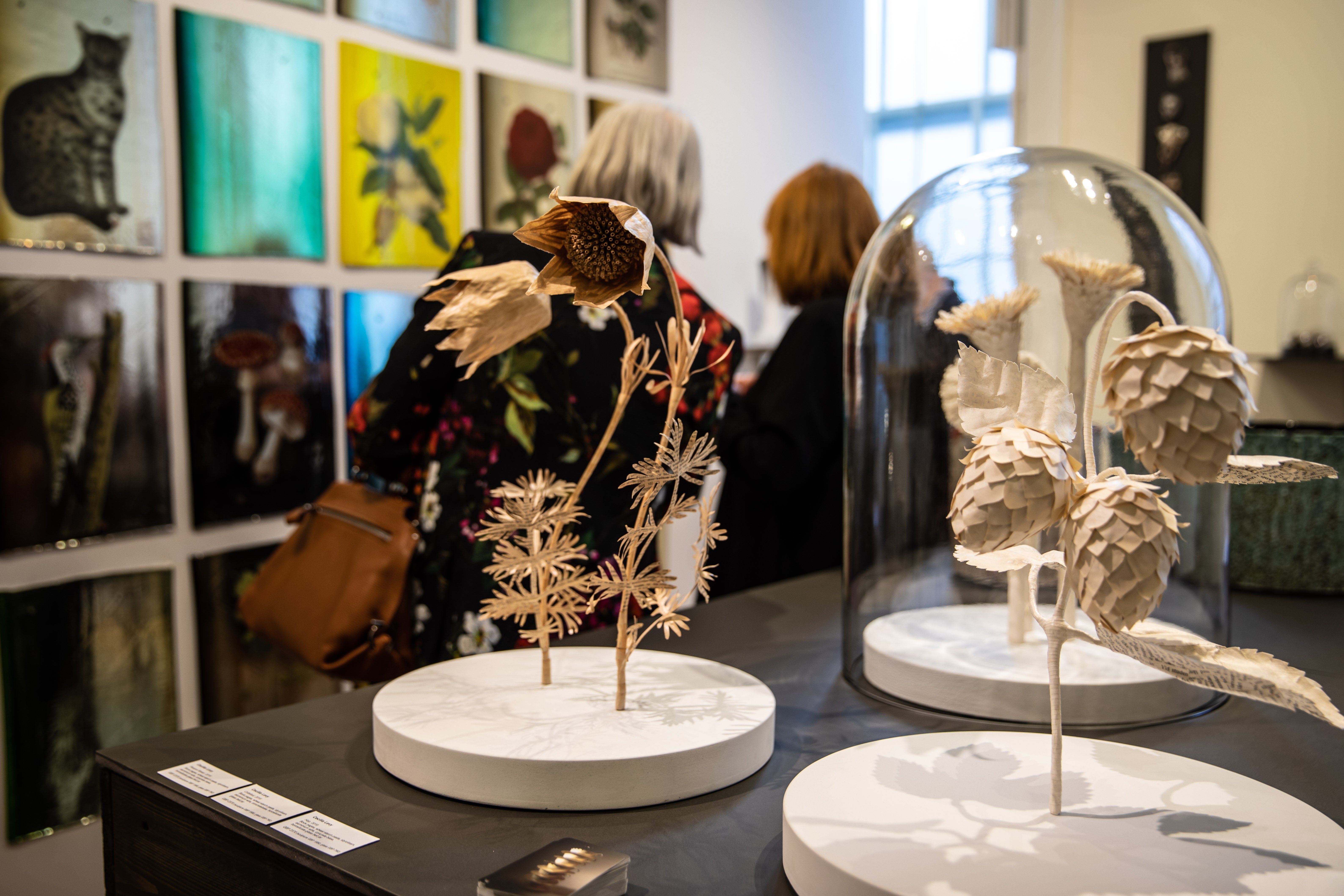
Art performs many functions in the home. Interior designers rely on it to bring life into the rooms they’ve conjured from their early moodboards, sourcing trips and bespoke commissions. For example, Francis Sultana and the Mlinaric, Henry and Zervudachi studio use artwork to lend colour and texture; Beata Heuman and Luke Edward Hall use it to add nostalgia and character, while Albion Nord and Rose Uniacke channel nuance and narrative through the canvasses, boards and sculptures in their refined projects.
So too do the artists appreciate the way their works inform such spaces, holding the furniture and the viewers in tacit discourse. Alias Trate, a London-based contemporary artist known for his emotive and expressive use of colour, says, “there is a primacy of colour in my work that projects a presence outward from the canvas, filling the room around the work”. Laurence Bonnel, a Parisian sculptor and founder of Galerie Scene Ouverte, goes as far as to say, “artworks have souls and personalities that ignite a room. They have humour, they’re precious, and you can feel the presence of the artist or craftsperson who made them in the room”.
The urge to bring art into our homes is nothing new but it has been exacerbated by periods of lockdown and the increasing work-from-home culture.
Since the start of the pandemic, Artsy, an American arts brokerage, has seen a dramatic increase in the number of digital transactions. The website’s ecommerce purchases grew by 150 per cent at the beginning of the pandemic and accelerated further in 2021 as the art world began embracing transparent pricing and what is known as “low-friction” transactions, eliminating middlemen and making payment options smoother. Findings from a 2021 report Artsy commissioned in collaboration with Collect, the art fair, showed that the pandemic significantly accelerated the growth of online art marketplaces as venues for discovery and purchase. Another report on the subject, the Art Basel and UBS global market Art Report, found that the online art market more than doubled to $12.4bn in 2020, up from $6bn in 2019.

Jonathon Warren, commercial director of interiors website LuxDeco also bears good news. He tells me, “2021 was an exceptional year for artwork at LuxDeco and it's one of the departments that really peaked during lockdown, growing a huge 200 per cent-plus year-on-year”. The company, that sells homeware too, has seen a tangible shift in searches for high-quality, hand-crafted artworks. “Over the last 12 months, we have noticed a continued trend away from abstract art towards more traditional landscapes, portraiture and photography,” he says. “Specifically, in line with the 1970s aesthetic that is ruling at the moment, colourful, stylistic prints from Slim Aarons drive a huge amount of interest.”

In a similar vein, Helen Armon-Jones, founder of The Art Buyer, believes there’s no better time to give your walls some attention, and in turn, there’s no better way to do that than digitally. “When you break them down, homes are just bricks, mortar, steel and glass, but what really makes a house a home? It’s artwork that brings your personality, your own fingerprint, to the house you live in,” she says. “We have, and will continue to spend lots of time at home, so it’s important to invest in new art pieces that speak to you.” The Art Buyer is one of many companies, including Murus Art, a gallery that has partnered with an augmented reality specialist Poplar Studio, to launch a virtual art gallery, allowing clients to interactively browse art with visuals, showcasing the look and feel of the work in a residential space.
For more seasoned collectors, there are some hugely exciting new digital galleries for browsing art from the comfort of your home. Eye of the Collector is a new art platform that held its inaugural physical edition in September last year at Two Temple Place in Temple, London. The next opportunity to see the curation in person will be in May, but in the meantime, collectors can visit the platform’s dedicated online viewing rooms. The virtual, richly detailed “rooms” display exquisite works of art with the architectural salvage of an imagined network of grand salons, taking from the majesty of the exhibition’s first physical venue.

For the 18th edition of Collect, the show will take “phygital” form for the very first time, straddling physical and digital approaches to the modern-day gallery. It will open its doors at Somerset House again on 25 February and, simultaneously, will release works via Artsy, including online exclusives from galleries like ATTA Gallery in Thailand, Micheko Gallery in Munich and Gallery Skio in Seoul.
The increasing accessibility of art on a global scale can only be a good thing, so why not indulge in a scroll that takes you to the furthest-flung galleries you can think of as the art world blossoms in pixels between us?







